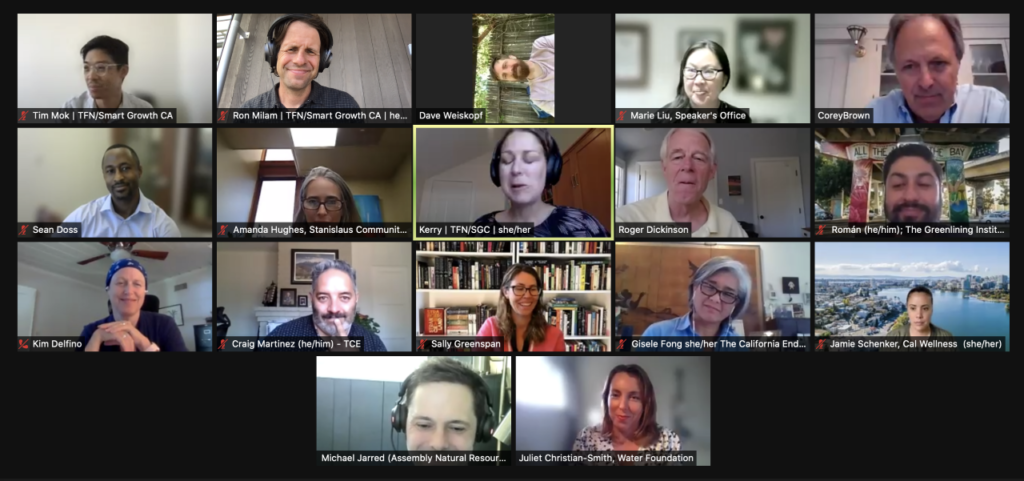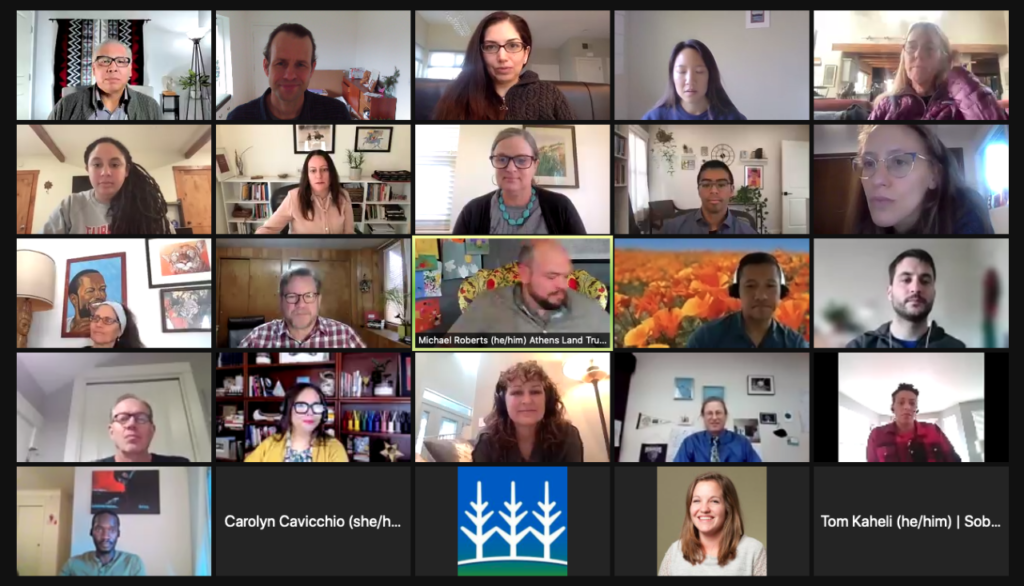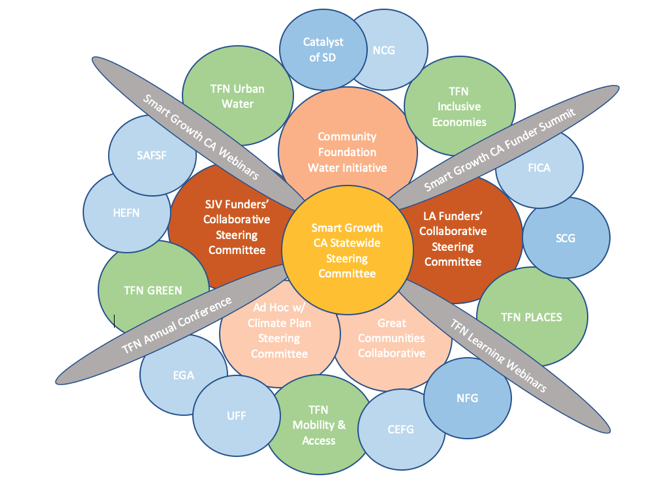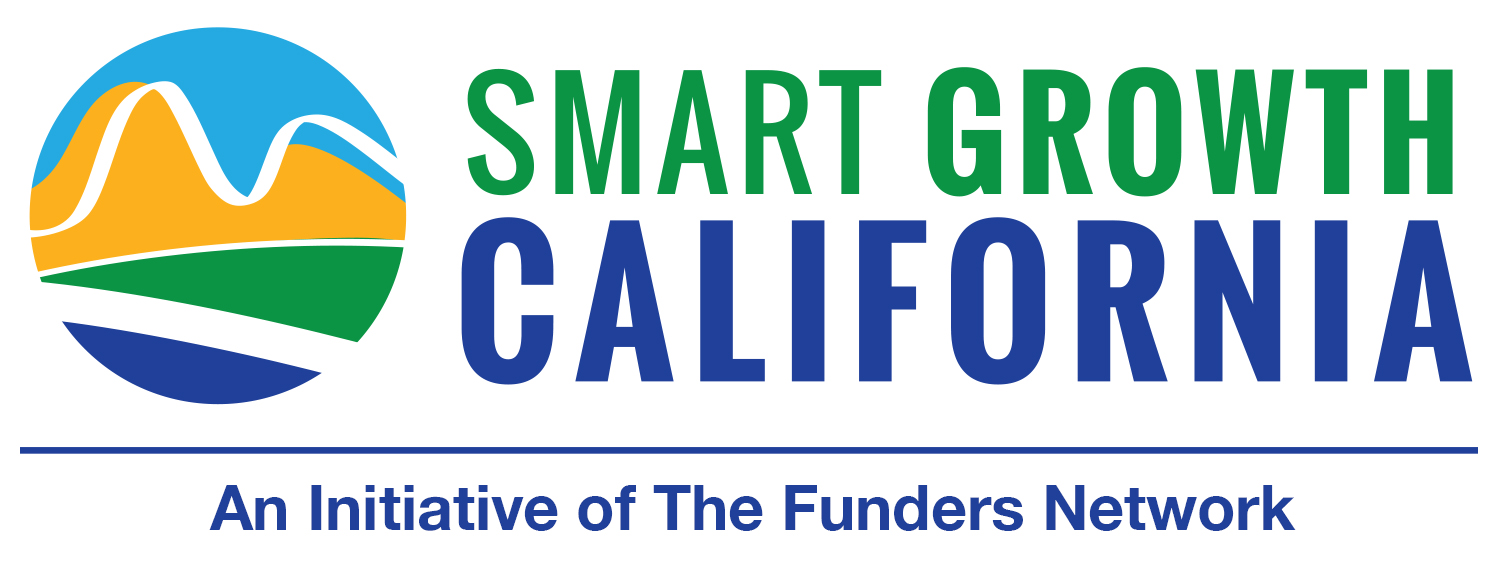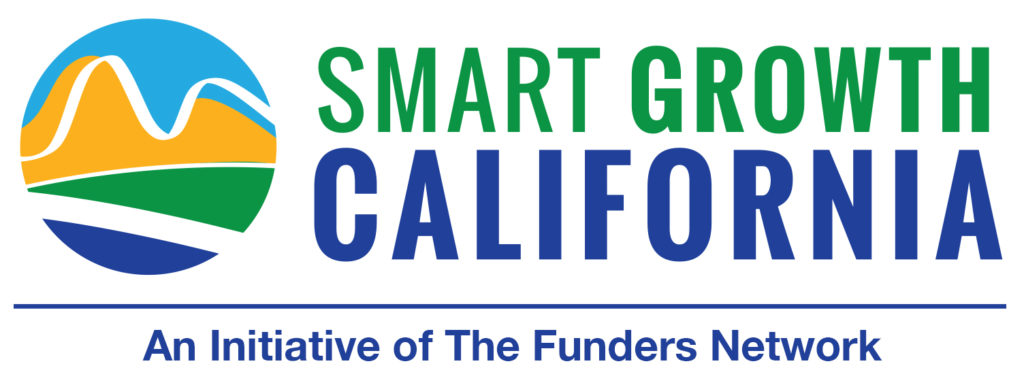
For Smart Growth California (SGC), 2021 has been a year of adaptation as funders continue to assess the ever-changing landscape affecting their work. Our funders and the communities they serve now have a greater sense of the virus itself, the impacts of the pandemic and how they can respond. Vaccines have allowed for certain aspects of pre-pandemic life to feel near, while the uncertainty of variants creates more unknowns. Simultaneously, a new federal administration’s commitment to equitable investments, alongside a massive influx of public funding provides a rare opportunity to advance climate resilient, equitable and sustainable communities.
In 2020, SGC funders raced to respond to the pandemic through recovery grantmaking. In 2021, they challenged one another to continue the shift that 2020 brought on – prioritizing racial justice with general operating support. SGC funders also recognized that after a year of all-virtual with another potentially ahead, they needed to find ways to keep the work growing. This year, virtual meeting no longer felt new or out-of-the-ordinary. They were the new norm, and folks were ready to keep the work growing to create new collaborations. We worked to make our virtual meetings engaging, utilizing paired conversations, small group breakouts, guest speakers and various virtual collaboration tools.
Overall, 2021 was a year where Smart Growth California and the funders we work with were no longer in shock-mode from the pandemic, but have steadied themselves to chart a path for working together in virtual spaces with a hope of reengaging in-person gatherings in 2022.
Increasing Funder Engagement
This year, SGC’s network grew to 525 professionals representing over 205 funding institutions. Over 260 funders participated in 23 SGC workgroup meetings, 12 ad hoc meetings and three virtual gatherings. In addition, SGC co-hosted another 8 webinars that 394 funders attended. The SGC team prepared and distributed a monthly e-newsletter (if you’re a funder and would like to receive our newsletter, click here) with relevant articles, timely information and organizational updates, as well as utilized our blog to report on critical issues in the funder community and engage a broader set of funders; 8 blog posts were published in 2021. We’ve continued use of SGC’s Twitter account (which increased to 634 followers). SGC staff also conducted one-on-one outreach to funders at state and regional levels.
Smart Growth California increased the number of funders serving in leadership positions on all key committees, and more funders are working together collaboratively across the state, with 11 new funders joining SGC working groups. In total during the past year, 41 individual funders participated as active members of working groups in the SGC network (with an additional 10 funders who departed workgroups for various reasons):
- Statewide Steering Committee: 15 individuals representing 13 funding institutions
- Los Angeles Funders’ Collaborative: 13 individuals representing 13 funding institutions
- San Joaquin Valley Funders’ Collaborative: 17 individuals representing 15 funding institutions
Racial Justice as a Key Pillar
SGC hosted our first two virtual workgroup network gatherings and explored strategies to deepen our collective work around racial equity, in alignment with The Funders Network’s Strategic and Racial Equity Framework.
Smart Growth California’s team continued to prioritize lifting up racial justice, including:
- Time for Dialog: Significant time on all workgroup agendas have provided space for funders to share their own racial justice work and learnings, both institutionally and individually.
- Learning from Leaders: Smart Growth California learned from 53 BIPOC- leaders (61.6% of the total number of 86 speakers), who presented and lifted up various policy solutions to advance racial equity at various Smart Growth California workgroup meetings and at webinars we hosted or co-hosted.
- An internal commitment for continued consciousness-raising to inform our action: The Smart Growth California team met every two weeks throughout the year and took time for each other to share their own learnings, readings and insights they were gaining around racial equity, and then discussed how me might apply those to our larger network. Ron Milam participated in TFN’s Racial Equity Committee and both he and Kerry Hastings participated in the 6-part Foundations for Racial Equity series offered by Philanthropy California.
2021 Funder Learning, Alignment and Collaboration
Increasing Funder Knowledge
Throughout the year, SGC invited speakers to present at our workgroup meetings and webinar we hosted, which included leadership from nonprofits, government, public agencies, academia, media and communities.
SGC hosted one virtual gathering, with 45 registered funders:
- 2021-2022 California Budget Briefing (Aug. 2021)
To enhance our virtual funder learning this year, SGC also co-sponsored two funder learning series, in partnership with multiple philanthropy serving organizations, including Philanthropy California, Philanthropy Northwest, Native Americans in Philanthropy and other. Between the two series’, 381 funders registered:
- Grounded Action: Grassroots Movements and Climate Justice (April 2021)
- Engaging Indigenous Leadership in Climate & Disaster Resiliency (Nov. & Dec. 2021)
In partnership with Southern California Grantmakers, SGC co-hosted four funder convenings (attended by 154 people):
- Urban, Green Infrastructure Under a New Administration (Feb. 2021)
- Climate Resilience Investment in SoCal: The Implementation Questions (May 2021)
- Climate, Health, & Equity in SoCal: A Case for Understanding Intersecting Issues (Aug. 2021)
- Climate Resiliency in SoCal: Bolstering the Green Workforce Ecosystem (Nov. 2021)
Statewide Steering Committee
The SGC Statewide Steering Committee continues to be a place of shared learning, networking and alignment to advance the creation of healthy, equitable and sustainable communities for all Californians. The year started off with a virtual meeting held in partnership with the Climate Plan steering committee to explore potential statewide opportunities for collaboration. The statewide steering committee allocated time at its subsequent bi-monthly meetings to take a deeper dive with key leaders working on these topics, including wildfires and land use, the Climate Bond (much of which was later incorporated into historic climate investments in the state’s budget), the California Action Plan for Transportation Infrastructure (CAPTI), federal infrastructure investments and Regional Early Action Planning Grants of 2021 (REAP 2.0). Given the virtual nature of these meetings, SGC invited funders active in the LA and SJV Funders’ Collaboratives to join these conversations, any many working group members did attend over the course of the year. Several possibilities for funder collaboration have emerged including opportunities to support the implementation of CAPTI, development of CARB’s 2022 Scoping Plan, development of REAP 2.0, funding for water/drought resilience and equitable implementation of multiple federal and state funding streams.
We mourned the passing of Arlene Rodriguez, formerly with The San Francisco Foundation, who played a key role in launching Smart Growth California. Arlene also served on the TFN Board of Directors. To mark this loss, several SGC and TFN funders shared reflections on her life and impact in this blog post.
San Joaquin Valley Funders’ Collaborative (SJVFC)
At the end of 2020, the SJVFC received a grant from the S.D. Bechtel Jr., Foundation to subgrant out with the goal of increasing interest and philanthropic giving in the Valley. A small group of SJVFC funders met and identified the work of the Central Valley Agroecology Farmer Training Program, a collaborative effort designed to connect people to the land with ancestral, equity-centered and climate-based practices. The SJVFC met with members of the collective and decided to make the grant to their efforts to equip them with more capacity to seek funding for the ambitious initiative. The success of their vision for an agroecology center will open doors for new types of funders to invest in the Valley and the SJVFC sees itself as an ongoing partner in identifying new sources of capital for the project.
The SJVFC’s interaction with the Agroecology Center began a series of conversations that lifted up the topic of land ownership in the region. Funders interested in community ownership and land trusts began meeting as an ad hoc group, and are moving forward in bringing on a consultant to do listening sessions with Valley groups and design a learning series to build the capacity of folks on the ground as well as design a strategy that funders can build support around.
The Power, Equity and Clean Water Collective completed their second year of funding. The year began with a challenge for the group when funders at the table has misaligned expectations for a gathering with partners. This led to a series of meetings with core funder partners representing the PECWC intermediaries (Water Foundation, San Joaquin Valley Health Fund) and SJVFC co-chairs (Ceres Trust, Latino Community Foundation). Funders were able to work through their different expectations and are now meeting quarterly – facilitated by Smart Growth California – to have clearer communication with partners and ensure alignment on reporting expectations.
Los Angeles Funders’ Collaborative (LAFC)
Several members of the Los Angeles Funders’ Collaborative continued co-funding the Link Program, which has leveraged over $1.4 million to provide technical and engagement support to community-based organizations and cities to support equitable implementation of park funding from Measure A, and Proposition 68 which builds upon the Measures Matters report that the Collaborative supported previously.
Several funders within the LAFC also supported related initiatives, including the 10×10 Process which helped develop a community generated pipeline of proposed projects to be funded by equitable implementation of the countywide ballot measures for transportation, parks, stormwater and homeless housing (over $1.5 billion annually). One of these projects wound up being included in the first round of WHAM funding the County prioritized. Several funders also supported ReDesign LA, which provides technical assistance and building the capacity of small municipalities, school districts, and local CBOs to develop and implement multi-benefit projects that integrate stormwater capture and climate resiliency.
San Diego Funders’ Collaborative (SDFC)
SGC began initial conversations with funders in San Diego about the possibility of launching a new workgroup, and generated some initial interest from the San Diego Foundation, International Community Foundation, The California Endowment and Catalyst of San Diego and Imperial Counties. This effort will grow in 2022 with the potential launch of a new SGC working group.
Great Communities Collaborative (GCC)
SGC continues to support the Great Communities Collaborative in the Bay Area and promote GCC’s work through our monthly newsletter. Ron connected with GCC’s new Senior Initiative Officer, Ricardo Huerta Niño, who also joined SGC’s statewide steering committed.
The Funders Network
In addition to working to implement TFN’s Racial Equity framework into SGC programming, SGC partnered with TFN in multiple ways, including helping plan its 2022 TFN Annual Conference in San Diego.
Community Foundation Water Initiative (CFWI)
While this 5-year initiative formerly wrapped up in 2020, SGC worked with TFN and brought on Estolano Advisors to write a report, which was released in early 2021: Community Foundations: Drivers of Inclusive and Meaningful Local Change.
Below are screenshots from some Smart Growth CA working meetings and webinars that took place virtually in 2021.
Statewide Steering Committee

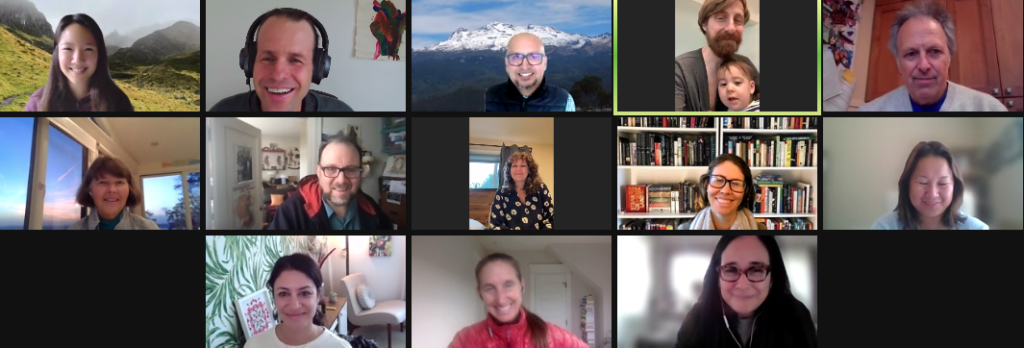

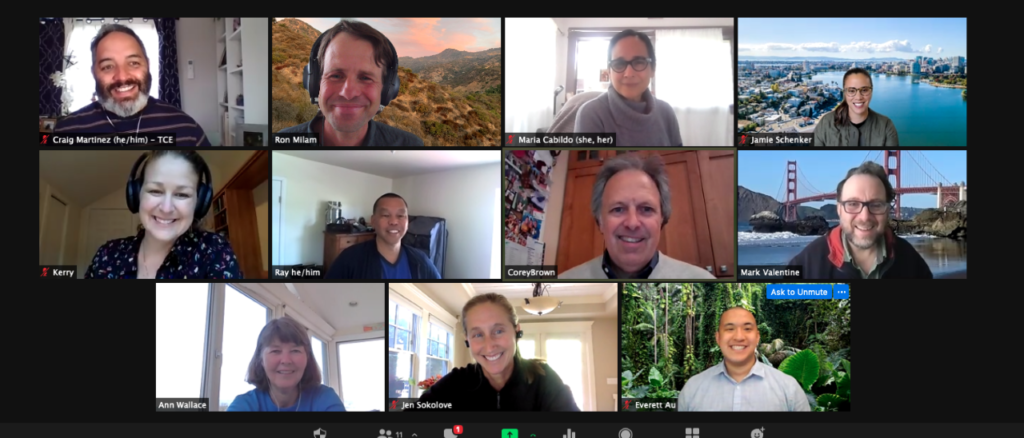
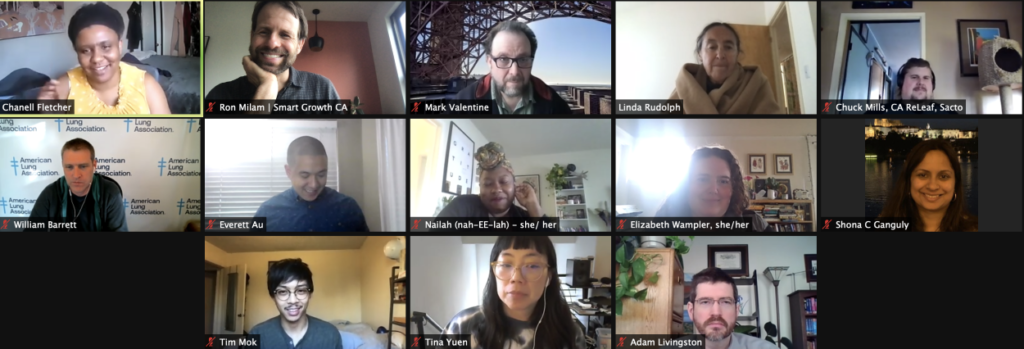
San Joaquin Valley Funders’ Collaborative
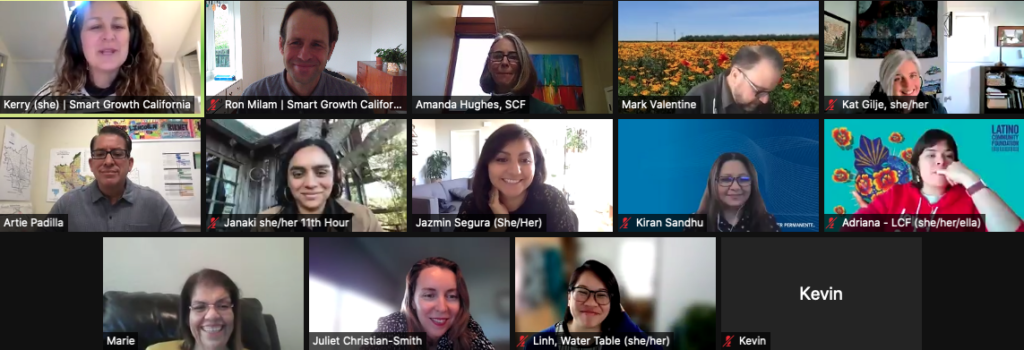
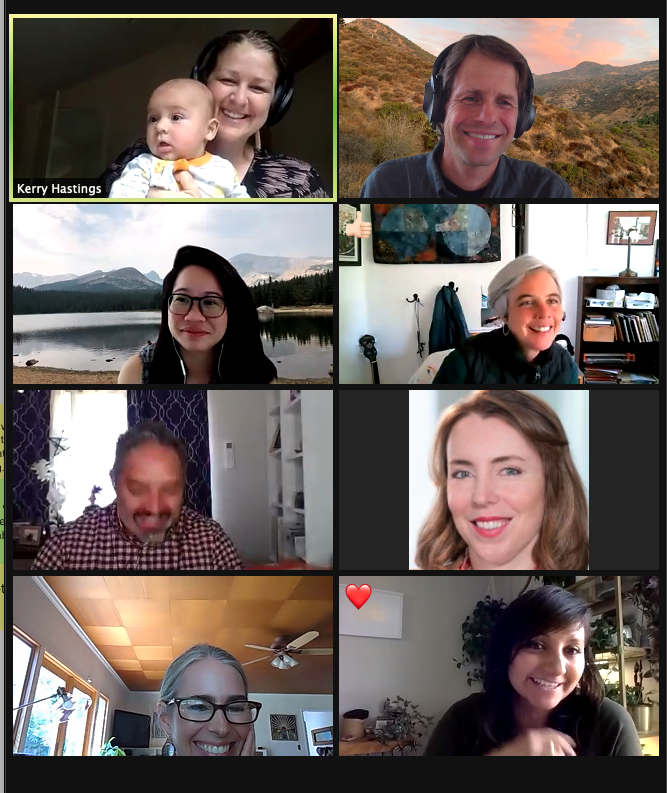
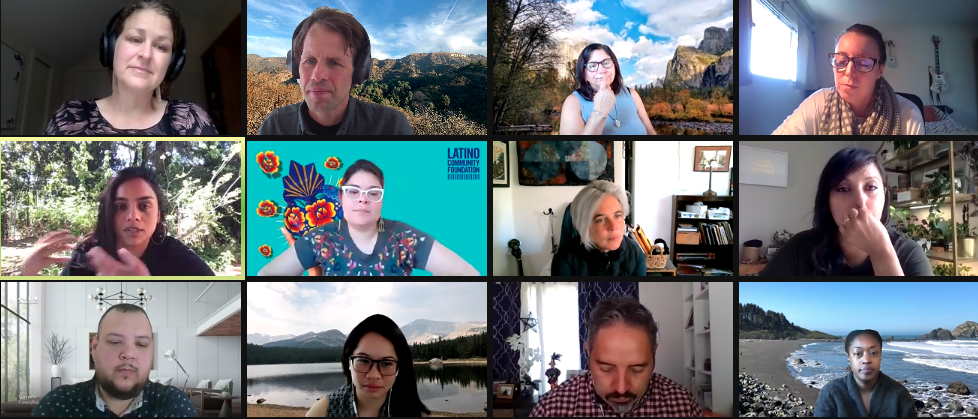
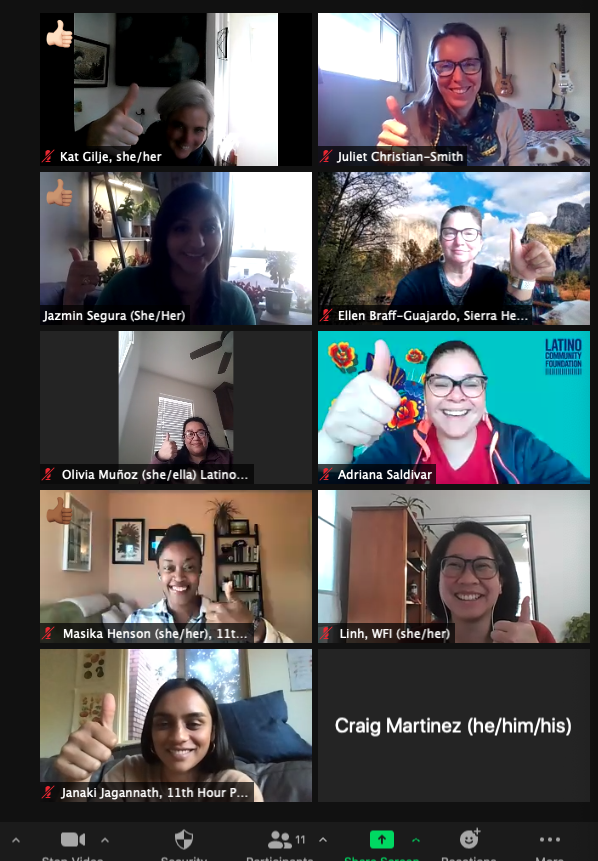
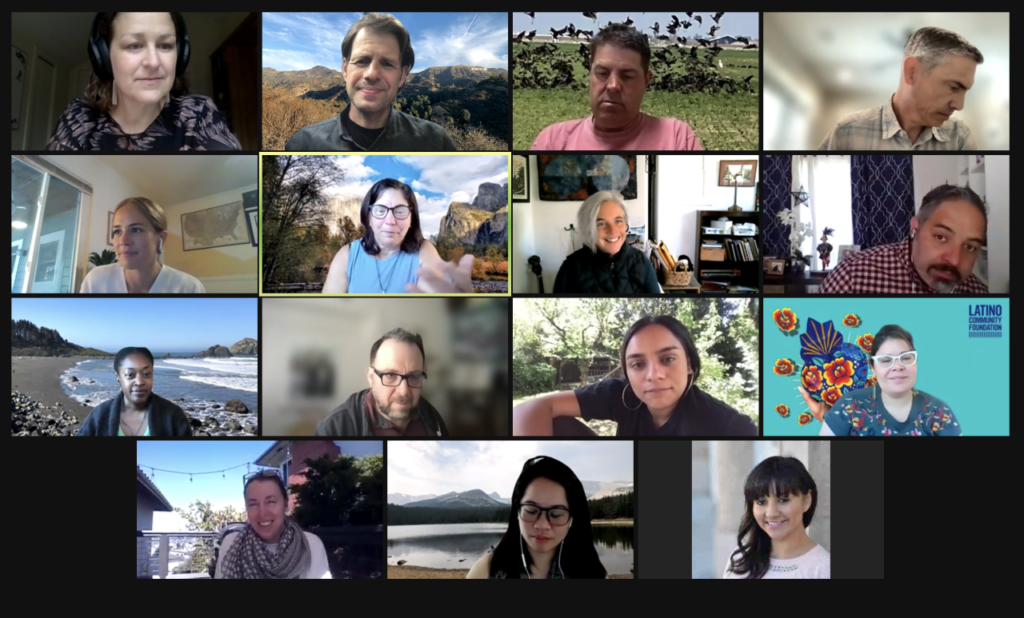
Los Angeles Funders’ Collaborative



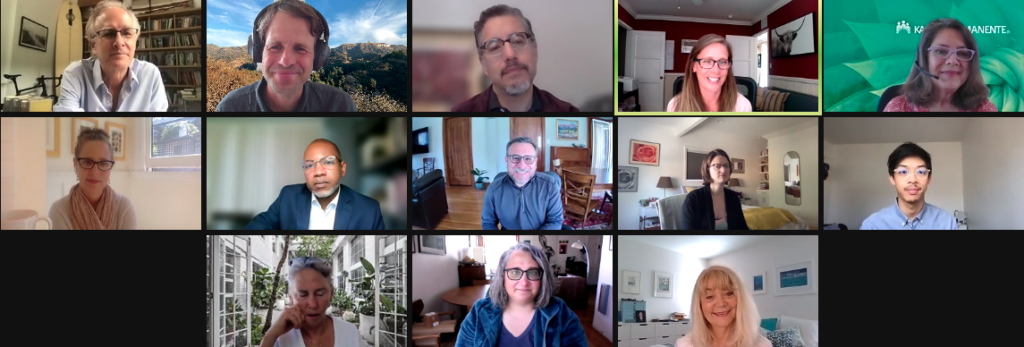
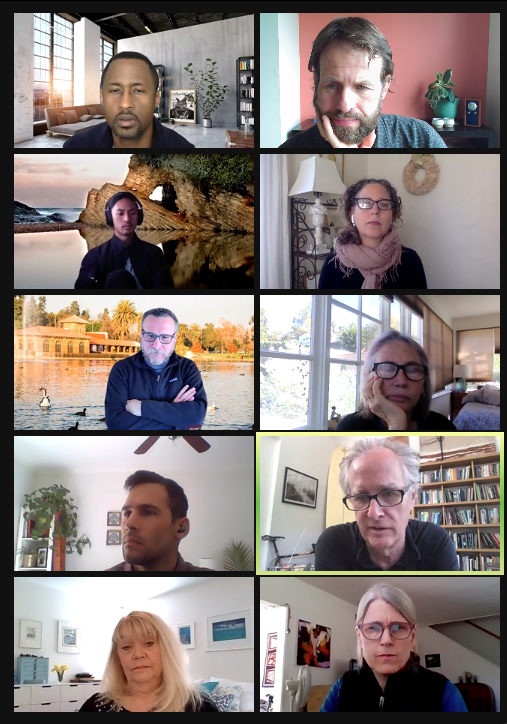
Workgroup Network Gatherings
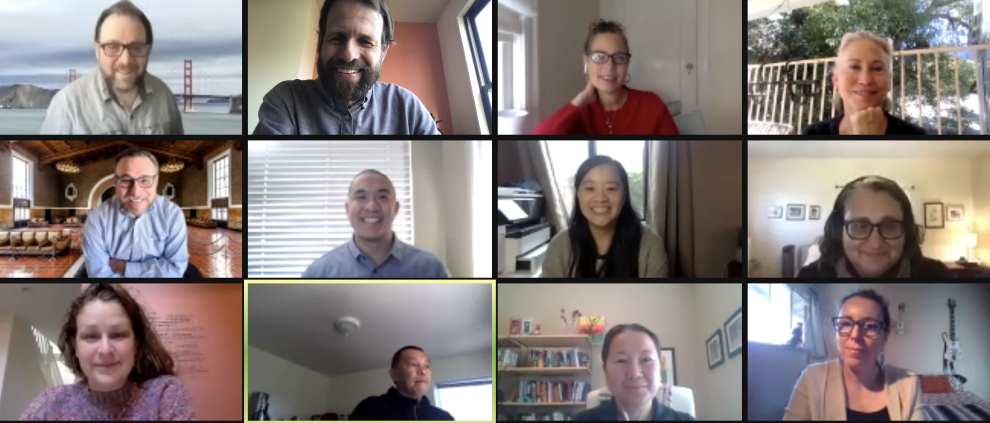

Webinars
